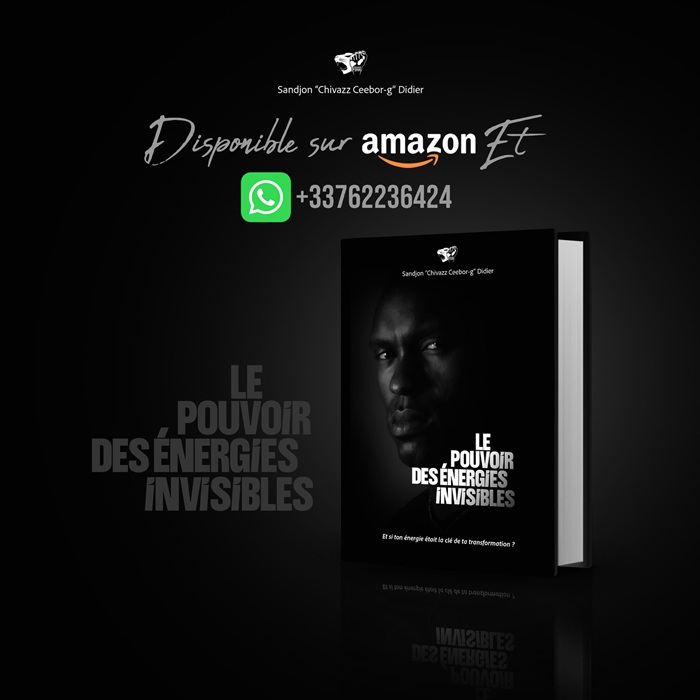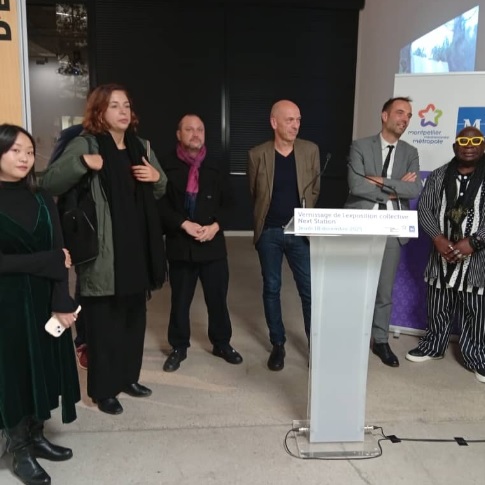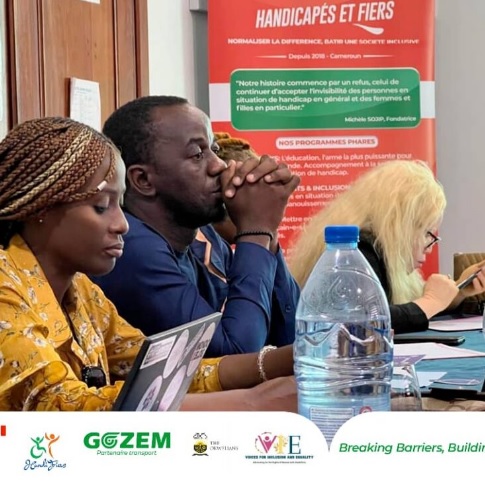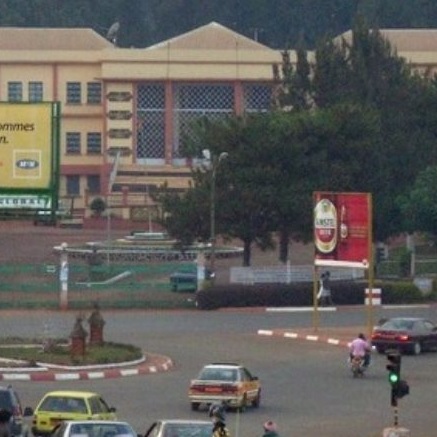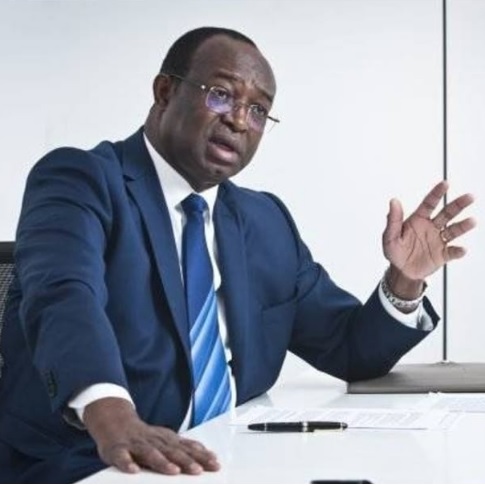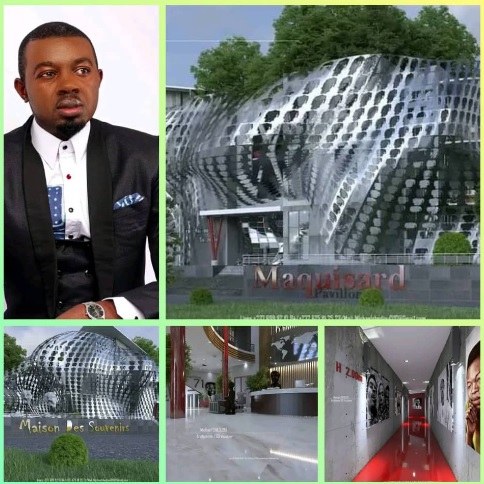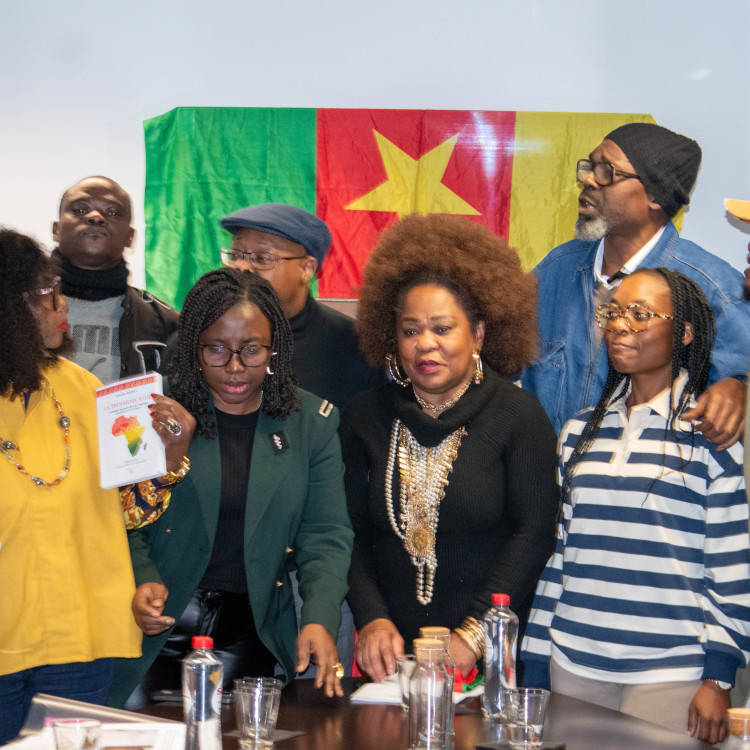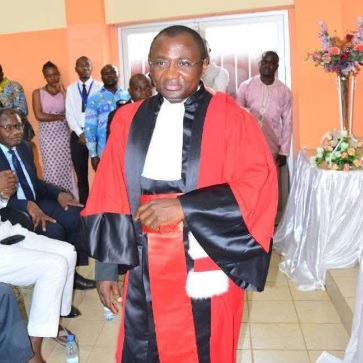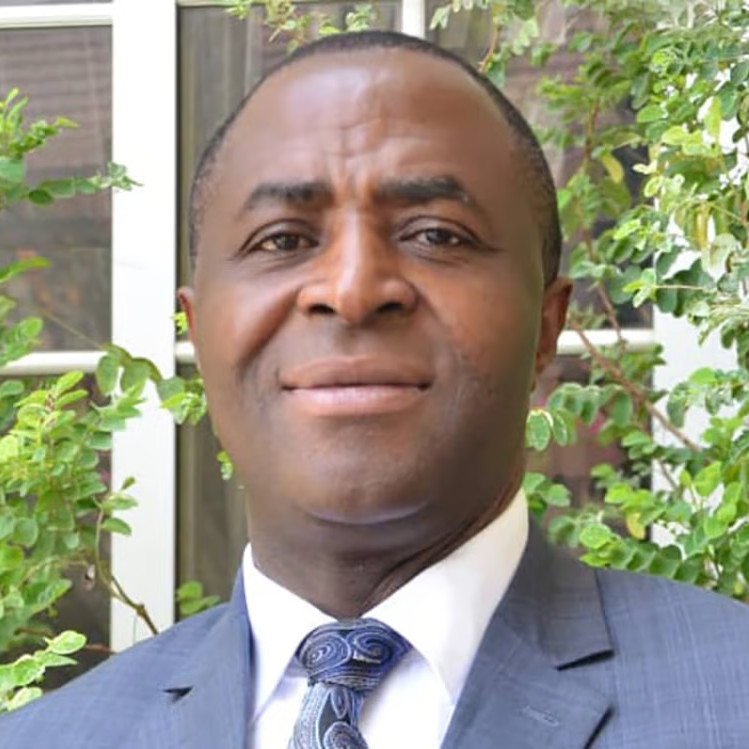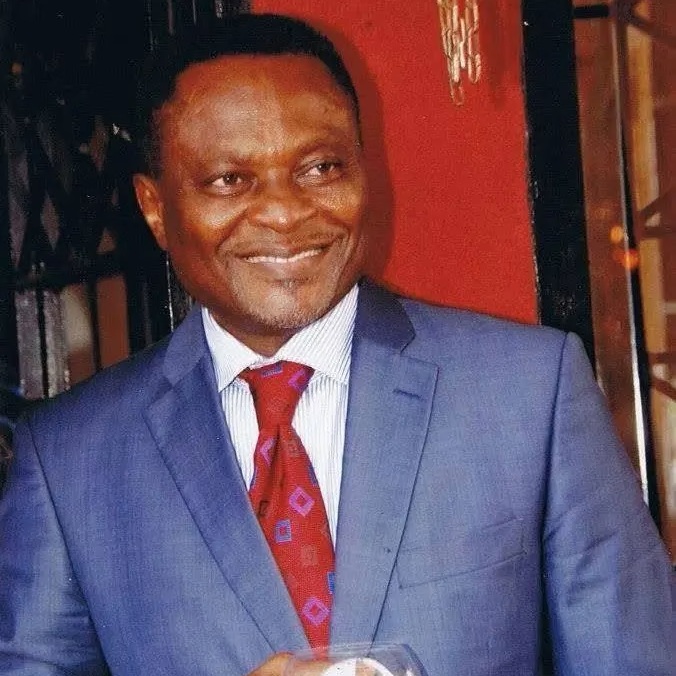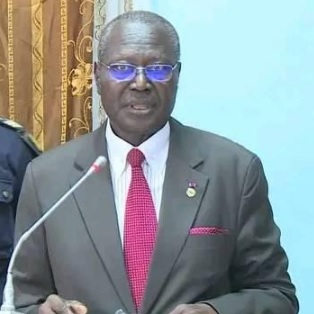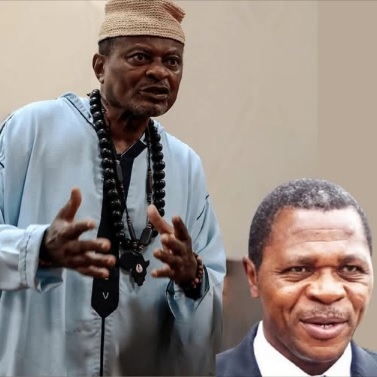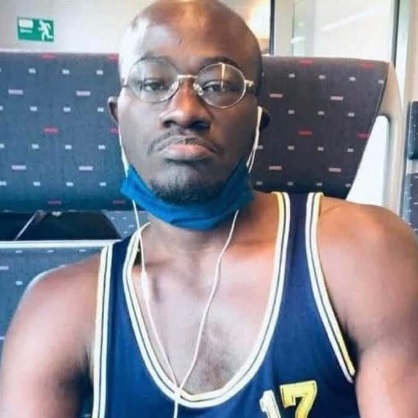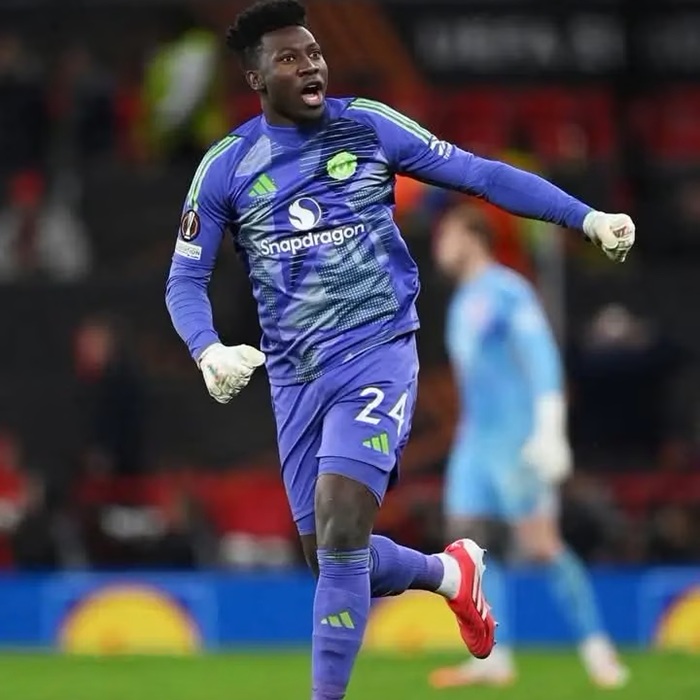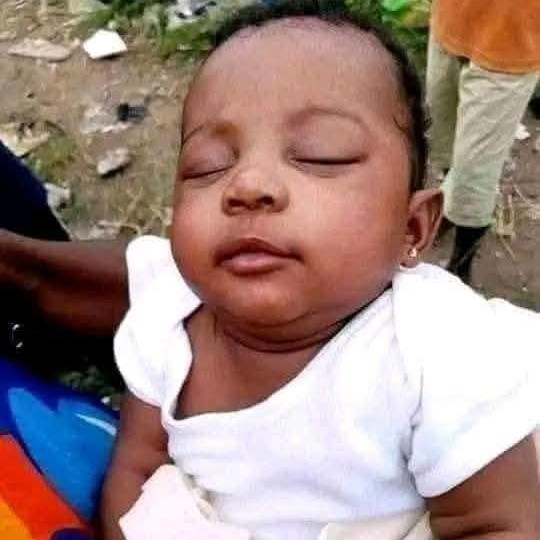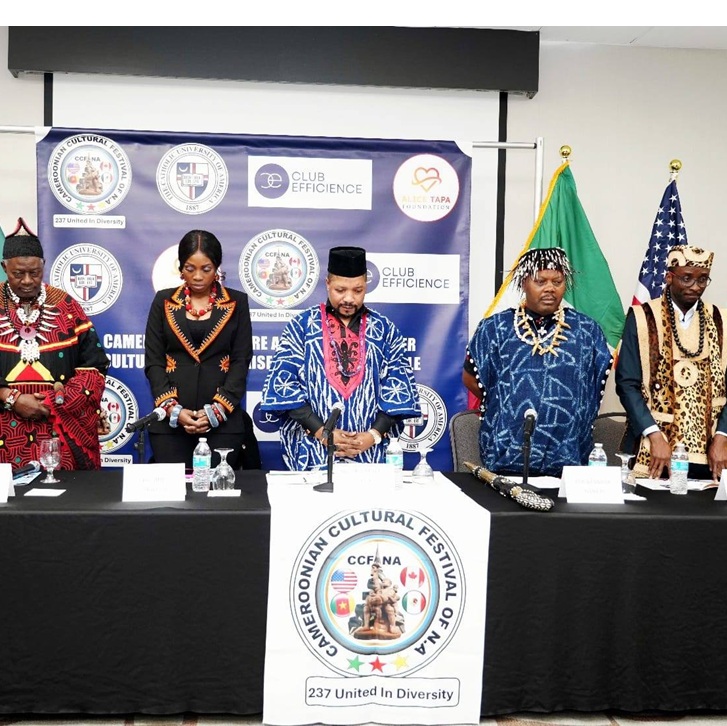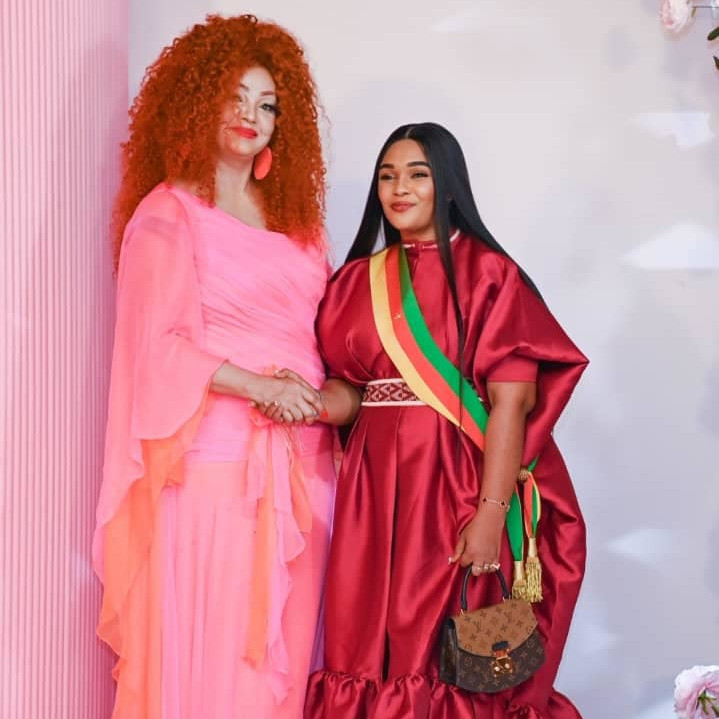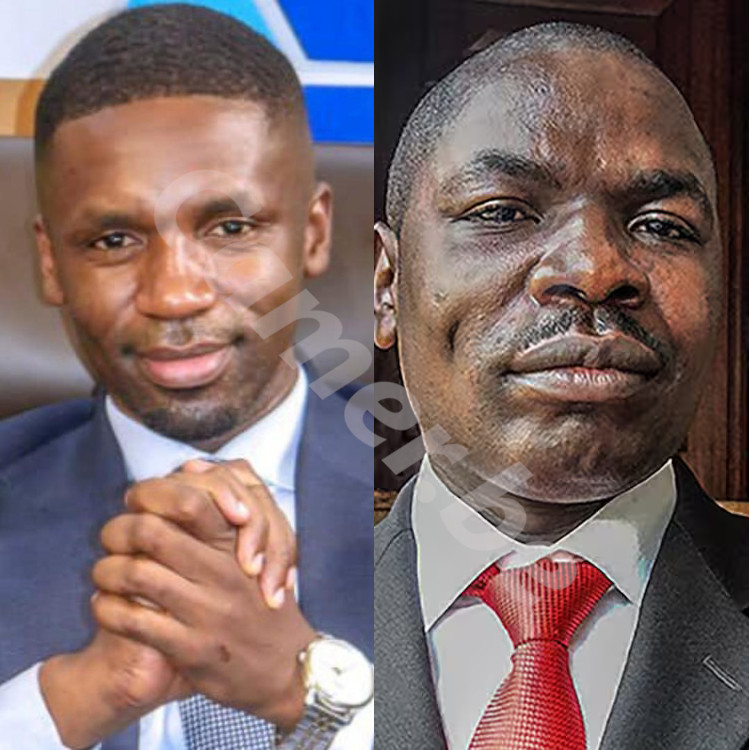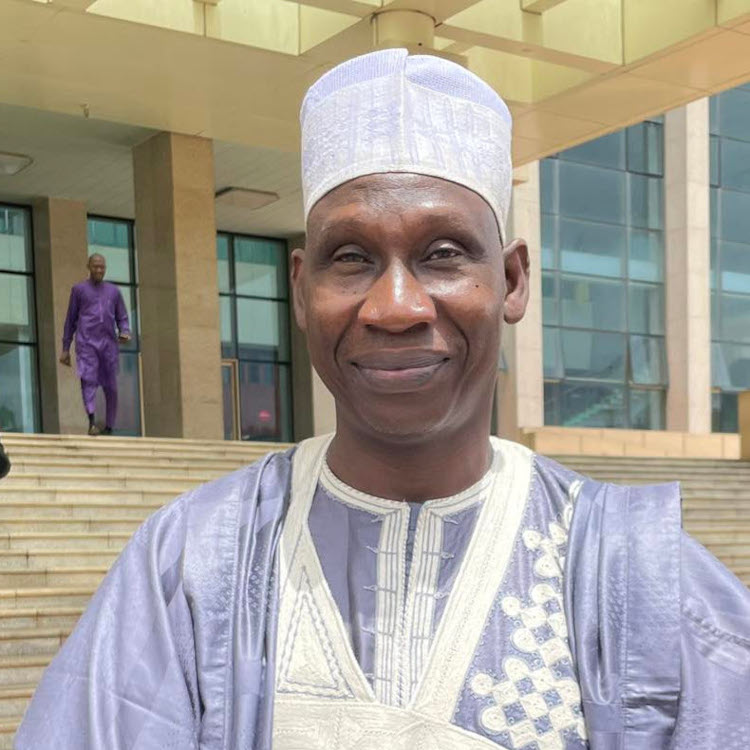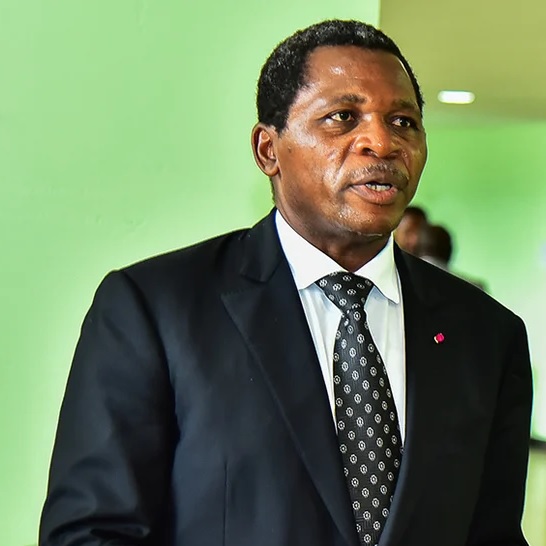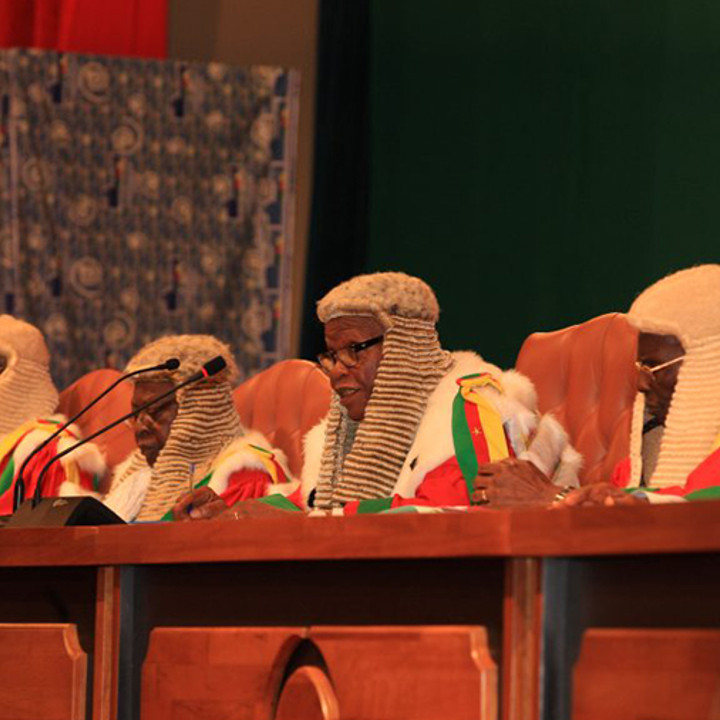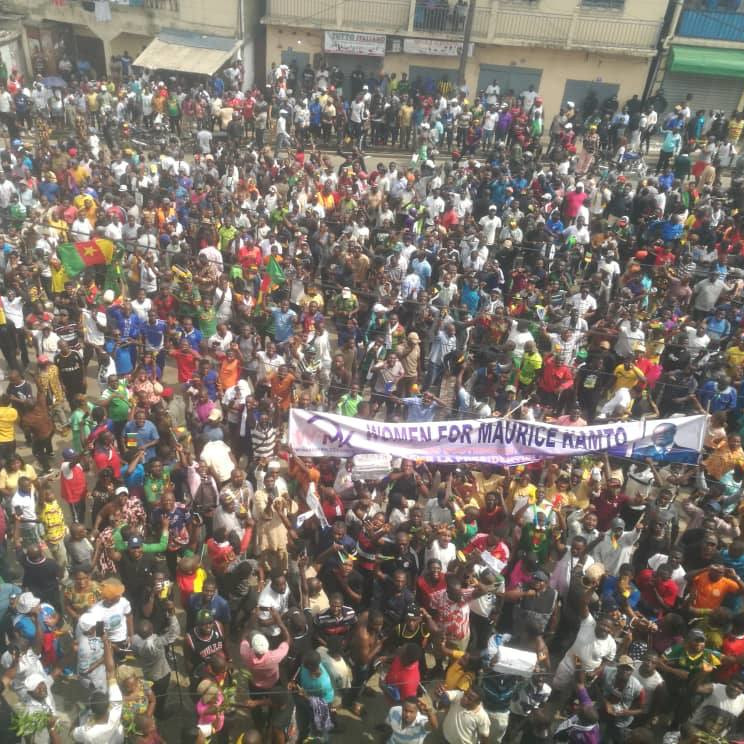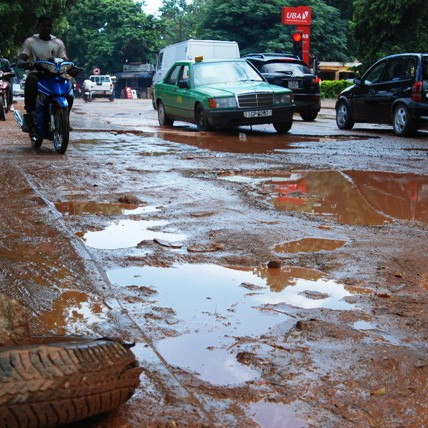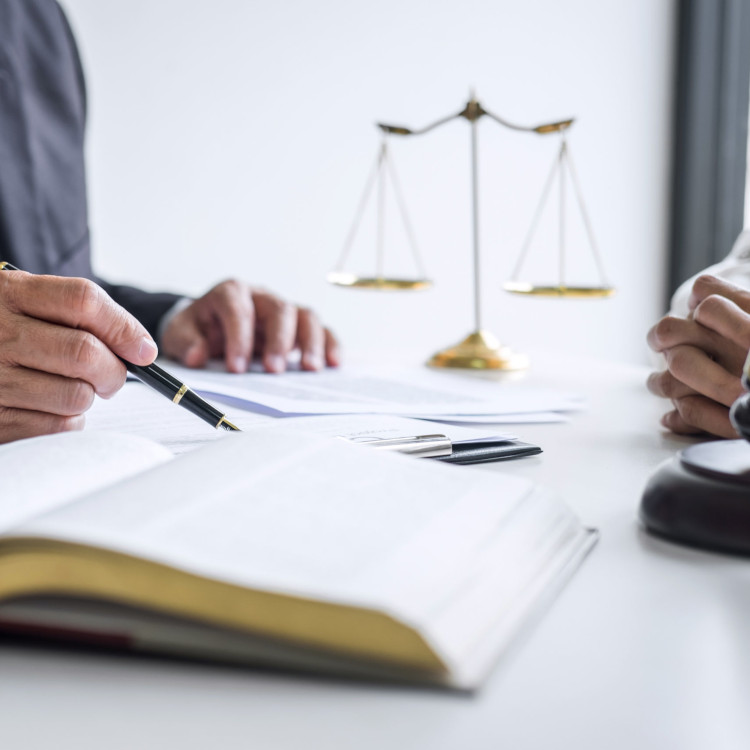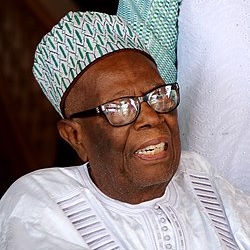

-
© Correspondance : Cl2p
- 07 Sep 2017 13:17:34
- |
- 4450
- |
Cameroun: Le conseil juridique et avocat du CL2P Stéphane B. ENGUELEGUELE s'exprime sur la crise anglophone :: CAMEROON
Dr. Barrister Stéphane BoBE ENGUELEGUELE is an International Lawyer, Revered University Professor & a Political Analyst.This renowned Legal Pundit has dedicated over 17 years fighting for the Respect of Human Rights and the Rule of Law in Africa. He has also worked with International Organizations and African Commissions to draft and propose mechanisms for evaluating policies to combat corruption, money laundering, terrorist financing and the proliferation of weapons of mass destruction. In the framework of expert missions carried out for the United Nations, he assessed the state of the rule of law in several countries, particularly in West Africa. He is also the Lead Counsel of the Committee for the Liberation of Political Prisoners (CL2P), and the Advocate of several families of victims of the railway disaster of Eseka.
In this exclusive and explosive interview he granted The Advocate hours after the release of some Anglophones leaders, opined that; now is the time to change our governance adding that, Cameroon cannot move forward without a new leadership. The venerated academician told The Advocate amongst other issues that, the decision of the Head of State might have come a little bit late, says "too much water has passed under the bridge.” He concluded our chart by insisting that, there is need for a meaningful and frank dialogue involving all stakeholders. No work can be undertaken in a human group without any concord.
It is a compelling read……. Stay on
Thanks for accepting to speak to the Advocate. Let's begin by asking you; 17 years defending the Human Rights of persons across Africa, Europe and the Americas, what is the Human Rights situation in Cameroon?
Our political system is schizophrenical, meaning we have a network of institutions, well adorned with actors within and also coupled with high valued principles and statutes, but unfortunately the reality on ground is different. Human rights are only theoretically protected in Cameroon, regardless that we are a member of the United Nations System. Please, be informed that Cameroon has ratified the major conventions on the protection of Human Rights, even at that; the situation deteriorates on a daily basis.
Allow me respond to your question by other questions in a bid to highlight the situation of Human Rights in Cameroon. Are the entire Cameroonians equal in rights and duties? Do we have an effective freedom of speech and can we express our political opinions without any fear? Do all the children of this country have the same right to education? Is the process of law due and equitable? Is the person deprived of his liberty and incarcerated certain that he will not be ill-treated? Are the delays of justice reasonable? Do women have the same rights as men? Do we have the same dignity in front of the State? Can Human Rights defenders work freely without risking their integrity and even their lives? I could go on with that litany of questions, but I'll stop here for I strongly believe that the Human Rights situation is extremely disturbing and calls for concern.
Meanwhile, it is the duty of the Cameroonian authorities to work and aim at modernizing the national system on Human Rights, Strengthening the Rule of Law, spreading the culture of Human Rights in educating the Citizens of this country on the ways to defend their own inalienable Rights with which they were born, also by protecting the Fundamental Rights of every Human Rights defender, activist or stake-holder and giving to the National Commission on Human rights investigative powers and the right to introduce judicial actions against perpetrators of the violation of same. Sincerely, these are the major issues on the Cameroonian Human Rights situation and state as we speak.
Anglophone Cameroonians have not been to school for over 9 months, what is the Human Rights implications of this?
This problem is an emblematic demonstration of the fact that Cameroonians do not have the same rights. Anglophone Cameroonians deserve the same right to education like their francophone brothers and sisters. By depriving young Anglophones of going to school for nine months, their Fundamental and Constitutional Rights to education has of course been violated. Let us remember that more than 65% of our population is made up of young people under the age of 25, and that the school crisis following the Anglophone crisis is likely to have considerable repercussions on the future of this generation. In our developing context, the right to an effective education is the guarantee of citizenship, social political and economic integration. We lose 9 months for the reasons known by all, and this is risky for the future of our country.
There are allegations of a series of lives at stake. The Right to life is also a Fundamental Human Right. What is your take?
Every Human Being has a Fundamental Right to Life. It is the first Right of a person at birth, a natural right before anything and of course, this Right must be protected by the State. This explains why the Right to life is the first Right against the State. The State is responsible for the protection of this Fundamental Right. Please note today that, any allegation of harm or mere attempt on the life of a person must be met with serious and prompt investigations and in such a situation, the National Commission on Human Rights should take up the case and file a complaint by bringing a due process. NO LIFE SHOULD EVER BE LOST IN VAIN without the culprit(s) duly prosecuted as prescribed by the law.
The Head of State's decree/decision to release the leaders of the Outlawed Consortium and Co. was received with mixed feelings. How did you receive it?
The leaders of the consortium should never have been deprived of their freedom in the first place, looking at the whole legal procedure and events which unfolded from the time when they were arbitrarily arrested, detained, charged and trial under a law which was voted very recently to combat terrorism. They should never have been deprived of their freedom, looking also to the excessive abuse of power on them by the none respect of procedural prescriptions and also prolonged and meaningless time in detention, all in a bid to identify prosecoto's witnesses. It was about time the Head of State commenced a first step towards meaningful Dialogue. So why I can say I received the news with great and immeasurable contentment?
From the Head of State's Decision to Free the Leaders of the Outlawed Consortium and others, three aspects can be highlighted.
Firstly, the decree of the Head of State shows that Cameroon is still under a «decree system. » The decree demotes or elevates a person, in the present case the decree substitutes itself for the work of justice which seizes to function and thereby fails to do its work and render justice quickly and impartially. The decree demonstrates the true face of justice and politics: a link that will have to be completely broken in the context of a credible reform of justice.
- Secondly, the decision of the Head of State might be able to calm the situation in the short term, and I sincerely do hope that pupils, students and Co of the North and South Western Regions can return to school and to a state of normalcy and that my very learned colleagues of the Common Law Practice can definitely resume work and business at the Praetorium. Although at this point in time where the crises has been unnecessarily prolonged, I fear the decision of the Head of State might have come a little bit late; my daughter at home says "too much water has passed under the bridge", as we all have witnessed much damage in lives and properties; both private and public, too much radicalization, too many economic disasters, deep emotional and mental scars in the minds, hearts and souls of many.
- Thirdly, the call for a totally different approach to the way out of this crisis and the solutions adopted must carry positive and the intended impact must be achieved. By impact, I imagine the effect of measures like the creation of a common law branch in the Supreme Court, the creation and implementation of tangible reforms at the National School of Magistracy and Administration (ENAM), the creation of a Law School, the recruitment of judges among lawyers, and many others reforms. Regarding the type of state to be adopted and the way forward for our country, I recommend a national dialogue in the presence of a 3rd party like the United Nations, because as far as am concerned, the stakes are already beyond multiculturalism and bilingualism commissions. We cannot, in my opinion, avoid a national debate on the future of our living together.
You are a Cameroonian of the French Expression. Is there an Anglophone problem in Cameroon?
I love the expression that says you have to believe the one who tells you that the shoes he wears are hurting him. And I have a lot of trouble when I hear some people questioning the existence of an Anglophone problem in Cameroon, or feel that since some Francophone children are in fact Anglophones today because their parents have opted for Anglophone education, the problem would not exist. Yet this problem is a reality: was the legal culture of the common law entitled to quote? No. Was the style of relationship with the authority that singles the Anglophone culture respected? No, it has even been so often despised. Are the modes of political expression and the styles of collective action that distinguish the Anglophone world respected? No. We have always responded with violence and contempt, and the culminating point was reached at the beginning of the crisis when we saw students martyred by the police forces in Buea and Bamenda. So there is an Anglophone problem, and I think the decisions made by the central political authority shows that the problem is real. Anglophones want to be respected in their dignity and to deploy their potential within this country. Each Anglophone only asks to exercise his or her path, respecting what is most dear to him: attachment to a Culture that has historical origins, attachment to Education, attachment to the Rule of Law, and respect for Habeas corpus. Until then, these fundamental Rights have been poorly respected.
What is the way forward from your perspective?
We must build a real bridge over the Mungo. This is an image but more than that, it is the condition of the exit from this crisis. We must work to ensure that all Cameroonians consider themselves to be part of the same whole. I have often said that the most important issue is to make Fraternity a political project. Now, I do not yet see the first fruits. It will be necessary to bring together the hearts and the spirits, but above all to appease all affected. We will have to speak the Truth, and ensure Reconciliation. The exercise of authority is not enough, but truly inclusive policies will be needed to ensure that national wealth is shared. The educational system must be reformed so that children are better equipped to embrace the challenges of a changing world: I believe that the specificities of each educational sub-system must be preserved and that the resources devolved must be tenfold. Each then choose where he puts his children. It is clear that the issue of governance is central, as is the reform of the business environment. Anglophones are hard workers, they believe in good faith in business and have a high level of responsibility: they will not emerge from the crisis by not cleaning up the way of doing business, securing rights and among them the right of ownership. The agenda for the end of the crisis is much broader than what we have seen so far. And then there is the question of how we reform the State and its form to make it better. If the unity of Cameroon is an achievement which no one disputes, the question of the modernization of the State and its form is more urgent than ever, and it cannot be economized, within the framework of the institutions which organize the democratic debate.
Elections are planned in Cameroon in.2018. Yet pundits say it may. Not hold. What's your take on this?
Our country is suffocating. We need a real democratic debate on the future of our country. I hope 2018 will be the time of this debate like it is in most emerging states of the world and even the less developed world here in Africa; we must thrive for the furtherance of democracy, probity and transparency.
You are lead Counsel to the Committee for the liberation of political prisoners? What are some of the cases you have handled and what are your successes?
I am the lead counsel of the CL2P (Comité de liberation des prisonniers politiques). We supported the case of the Minister MARAFA on the Workshop of the UN on arbitrary detention. And it is now well known that the detention of Mr MARAFA is arbitrary and wrongful, also citing the cases of Mrs Yen EYOUM Lydienne, Atangana MEBARA, and Many Others.
Let's talk the Eseka matter.
Are you ok with the handling of the matter by the state? Why or why not?
After the infamous and tragic Eséka accident, the State should have taken several measures in the Interest of our country. The concession between CAMRAIL and the State had to be terminated first, the accident shows that CAMRAIL has committed heavy misconducts in the management of the public passenger rail services.
The rail has never been modernized and is still at metric gauge. Moreover, the wagons had no brakes and were bought as tells. By the time these wagons departed from Yaoundé to Douala on 21 October 2016, the managing company knew fully well that wagons did not have functional breaks devices; this is criminal for crying out loud! It was also necessary to evaluate the emergency equipment in the event of a major disaster, as it is now well known that several hours after the accident there was no medical assistance on site. Nothing is done to date for the disappeared, and I know several families who are still waiting for the situation of their disappeared to be clarified. Nothing has been done to my knowledge to compel the insurer of CAMRAIL and CAMRAIL itself, to offer decent compensation to families. Almost a year after the accident several victims are still not compensated.
The State must assume its responsibilities and give full play to national solidarity. It is also necessary to audit all companies that were privatized in the 1990s, as the Eséka matter marks the failure of privatization. In contrast to all this the Government has just conceived the port of Kribi to the Bolloré Group which is the majority shareholder of CAMRAIL. We need change.
Cameroon is in a critical situation right now
What is the way forward?
Now is the time to change our governance. Cameroon cannot move forward without a new leadership, an effective implementation of Rule of Law and good governance, we must sign new bilateral agreement with more states favoring investment possibilities of our countrymen in those countries and vice versa, we must create our own industries and plants to boost employment and discourage the outflow of our working population in the search for greener pastures, just like Ghana, Tanzania, Kenya and even our Neighbors Nigeria; we must transform our country in to a beautiful hub which will favor tourism, we must each of us have it as a duty to boost and rebuild the reputation of Cameroon to the rest of the world, we must detest corruption in any form, no matter how small, people who are civil servants must desire to serve the people without expecting rewards and tips, taxes must be reduced to encourage foreign and local investors. We have to change as soon as possible our economic route, and to build a new fiscal and economic policy to fasten the economic growth. The private sector is the natural actor of the growth; we then need to facilitate the business climate. We have to build a new deal, and of course ensure peace and security.
If you had a chance to address the President of the Republic of Cameroon, What will you tell him?
I will tell him that Cameroonians are asking a new Republic and a political transition. Citizens suffer from corruption of elites. The image of the country has never been as damaged as it is today.
Your last words if any
There is need for a meaningful and frank dialogue involving all stakeholders. No work can be undertaken in a human group without any concord.
Thank you.
https://m.facebook.com/theadvocatecameroon/posts/1746645045629460
Stéphane B. ENGUELEGUELE
Docteur des Universités en Science Politique
Avocat/Barrister at Law
Spécialiste en droit Public/Public Law
Qualification Droit Public Economique/Public Economy
3, rue Vincent Auriol
80.000 Amiens - France
Tél ++(333) 60.123.300 Télécopie ++(333) 60.123.301
stephane.engueleguele@dike-avocats.fr
Pour plus d'informations sur l'actualité, abonnez vous sur : notre chaîne WhatsApp
Lire aussi dans la rubrique POINT DE VUE
Les + récents
Hommages de Shanda Tonme à Joseph Kadji Defoso
Montpellier : le maire et ses populations admirent de l’exposition « Next station »
Marginalisation: Les femmes en situation de handicap, les invisibles de la démocratie
Conseil Régional de l’Ouest: Les élus de l’Udc boycottent la session de plein droit
Le sombre passé de Dologuélé remet en question sa capacité à gouverner le pays
POINT DE VUE :: les + lus





Cameroun,33 ans de pouvoir: Les 33 péchés de Paul Biya
- 10 November 2015
- /
- 105903
LE DéBAT
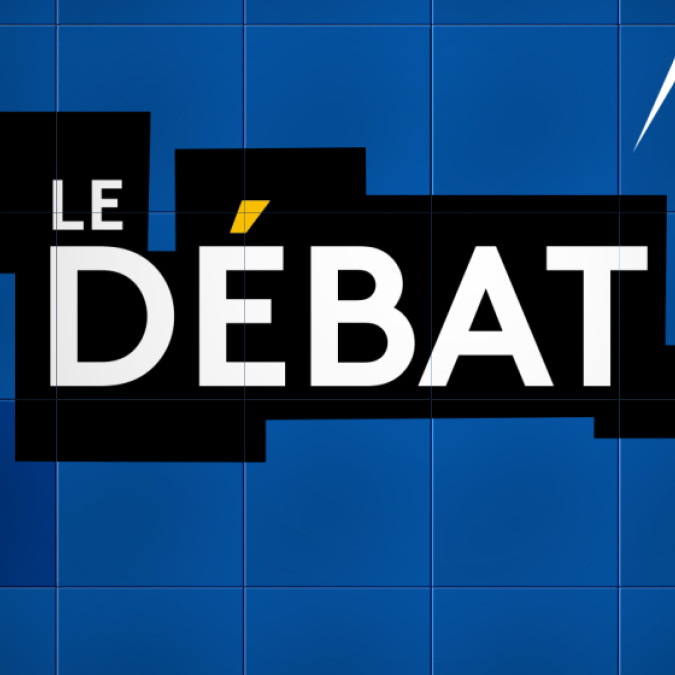



Afrique : Quel droit à l'image pour les défunts au Cameroun ?
- 17 December 2017
- /
- 218760

Vidéo de la semaine
évènement
